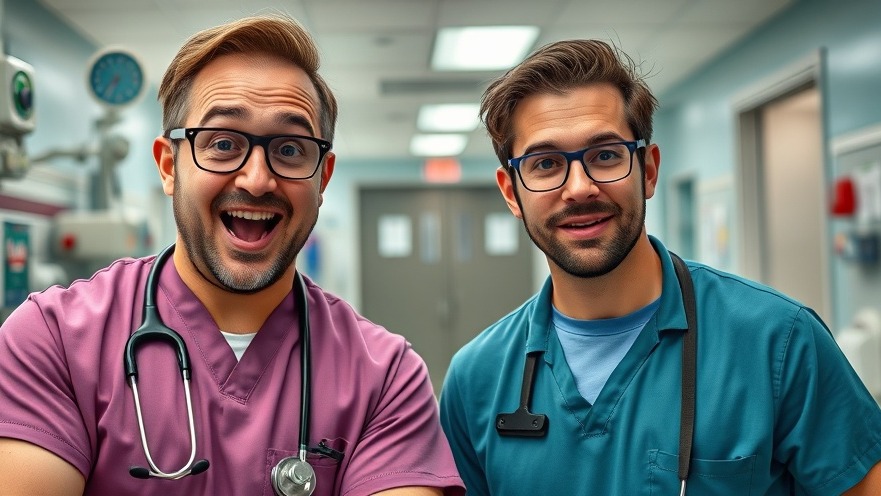
Adolescence and Pregnancy: The Reality Explained
In the latest episode of "The Pitt," we witness a powerful and emotional narrative that many families can relate to. The episode explores teenage pregnancy, shedding light on a challenging yet significant aspect of adolescent health. As Dr. Mike discussed in his reaction, it's crucial to understand how teenage pregnancies often bring discomfort and confusion, not just for the pregnant teens but for their families as well. It's important for parents to create a supportive environment where open conversations about sexual health and pregnancy can take place to avoid surprises and conflicts.
In "Doctor Reacts To The Pitt Ep. 6," the discussion dives into the complexities of teen pregnancy and ER management, exploring key insights that sparked deeper analysis on our end.
Understanding Emergency Room Dynamics
This episode also highlights the inner workings of an emergency room (ER), a place where time is of the essence. Dr. Mike emphasizes several points about emergency care management and the ongoing demand for healthcare professionals. Modern ERs must balance efficiency and patient care, often under pressure from administration to improve metrics like patient satisfaction and wait times. The corporate influence on healthcare can sometimes overshadow the compassion required to provide quality care.
The Influence of Administration on Patient Care
As showcased in the episode, there’s a tension between administrative goals and clinical needs. Dr. Mike pointed out that while policies are meant to reduce costs and improve statistical outcomes, they can sometimes alienate the very healthcare providers who execute these procedures. The portrayal of such corporate dynamics serves as a vital reminder of the need for healthcare systems to prioritize compassionate, patient-centered care rather than solely profit-driven metrics.
Teen Mental Health: Essential Conversations
This episode shines a light on the need for conversations surrounding mental health for adolescents, especially in stressful situations like unexpected pregnancies or health emergencies. Open dialogue can empower teens to express their concerns and navigate complex emotions that arise from such experiences. Mental health discussions should form a critical part of health education, allowing teens to access necessary resources without judgment.
A Call for Compassionate Care
The episode also raises a critical point about how healthcare providers communicate with patients and their families. Dr. Mike points out the importance of delivering difficult news in a compassionate manner, emphasizing the need to consider the emotional state of patients and their loved ones during such interactions. Understanding the patient’s perspective can foster a better provider-patient relationship, which is essential in promoting trust and facilitating effective care.
 Add Row
Add Row  Add
Add 




Write A Comment